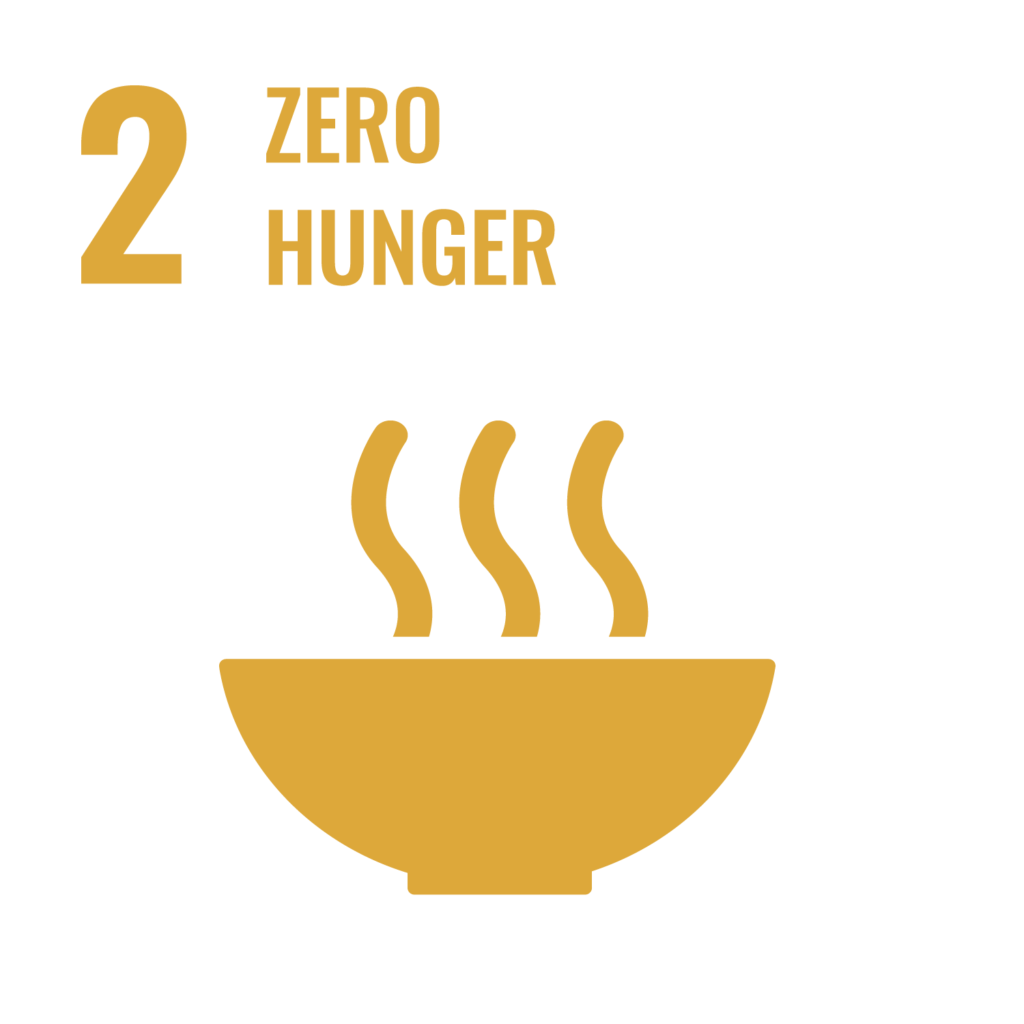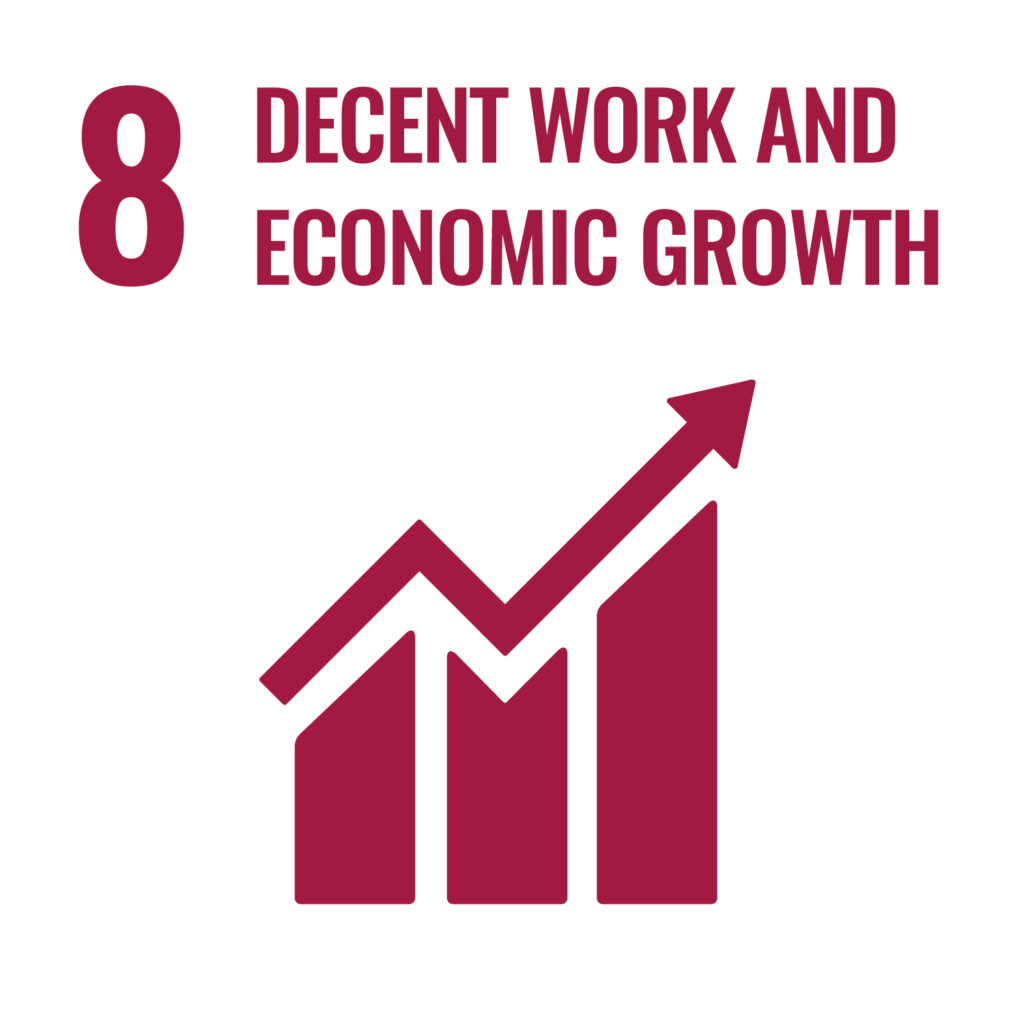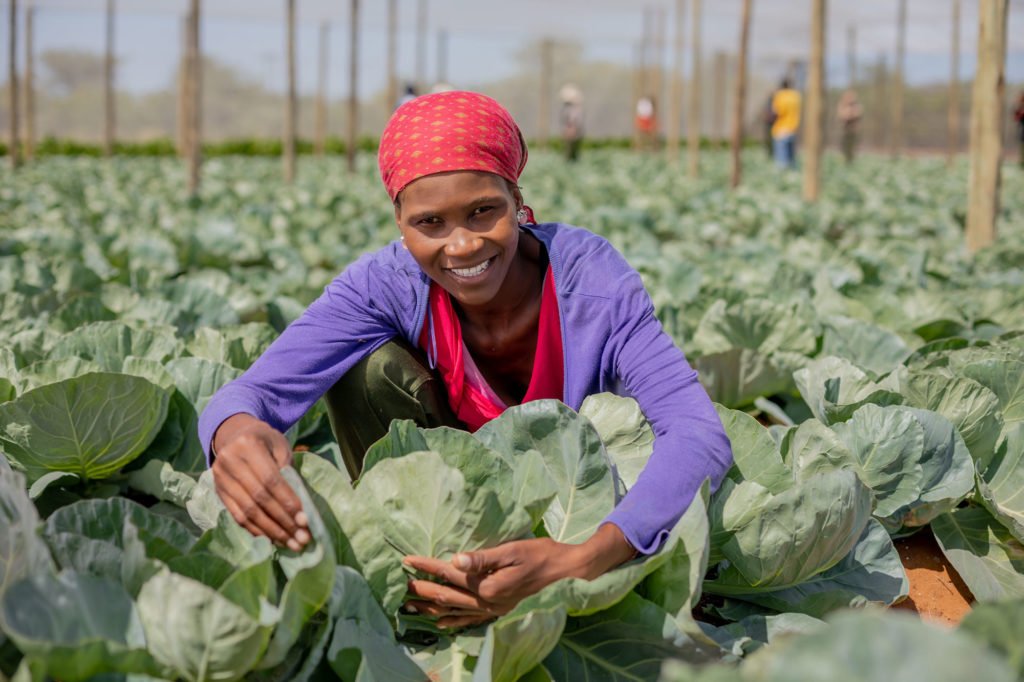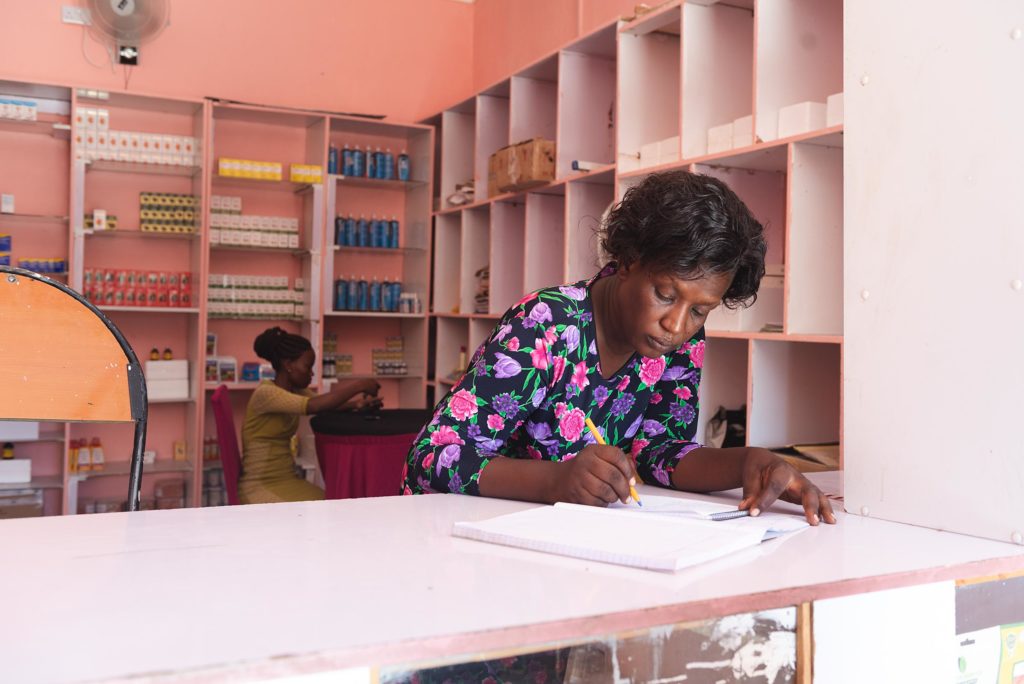The ability to grow means many things for the people from the village of Mokubilo, in Central-District, Botswana. For Oreeletswe Keatshabiwa, a single mother of two children, it means the potential to start her own poultry project to feed her family. For Mojaboswa Gabankitse, a horticultural farmer with a Bachelor of Science in Agriculture, it means an opportunity to put his education to use in his community. For the entire village, growing cabbage, spinach, green peppers and tomatoes, raising chickens and collecting eggs on the more than 25-hectare Mokubilo Cooperative Society Farm means building a brighter future.
In Botswana, many local governments require schools to facilitate feeding programs and purchase locally produced products, yet no farms in or near Mokubilo were previously capable of meeting this need. As a result, schools and residents of the village had to purchase produce transported from over 200 kilometres away, resulting in a significantly higher cost. Motivated to solve this challenge, the Mokubilo Cooperative Society came up with the idea of a community owned-and-operated commercial farm. Such an operation would assist in improving and sustaining the nutritional wellbeing of community members in the village through fresh vegetables and affordable protein.
Not far from Mokubilo is the Lucara Diamond Corp’s Karowe mine. In partnership with the Lundin Foundation, Lucara Botswana supported the Mokubilo Cooperative Society to launch the commercial farm, develop a financially viable business model, fund its construction and adoption of renewable energy, and provide management and governance training to the Cooperative’s board. The ultimate objective was to establish a self-sustaining operation that provides lasting benefits for the village.
The farm commenced operations in 2018 and delivered its first sales in early 2019. It has created 12 full-time positions for members of Mokubilo’s community. Employment has a meaningful impact for the staff, 92 percent of whom were previously unemployed or part-time employed. Additionally, farm wages are 29 percent higher than the national minimum wage.
“This farm has made me believe that nothing is impossible.”
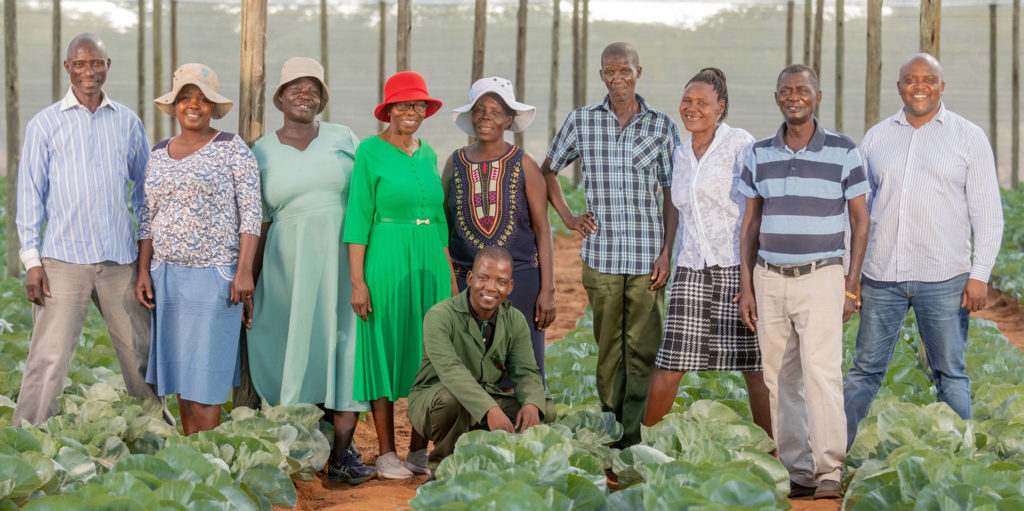
Project Impact
12 jobs created
1050 students accessing improved nutrition
Despite typical challenges of agriculture, including drought and elephants, the farm has already supplied fresh vegetables and eggs to two local schools, improving nutrition for 1,050 students. “When there is hard work, everything is possible,” says Baboni Tamekwa, a young man responsible for irrigation and fertilization at the farm.
This sentiment is echoed by Kedisaletse Kebatlhokile, an assistant farm supervisor who rears and cars for the farm’s chickens, who has plans to raise Boer goats in the future. “This farm has made me believe that nothing is impossible,” she says.
Farm assistant Gothata Maiketo Mosweu holds a Bachelor of Arts in Travel and Tourism Management but was unemployed for some time before starting work as a Farm Assistant at Mokubilo Cooperative Society Farm. She says addressing the lack of knowledge around integrated farming will result in real change for her community. “Agriculture is everything. The information and knowledge from the farm will be useful to youths and adults who want to venture into agricultural businesses,” she says. More personally, the job has opened her eyes to entrepreneurial opportunities within her area of education, and she hopes to explore how agriculture can also be used as a tourism activity. “The project motivates me to work on my own,” she says. “I have learned that perseverance can take someone from zero to being a hero.”
“The project motivates me to work on my own.”
UN Sustainable Development Goals
Our initiatives strive to improve people's lives and protect the planet and are in support of the following UN SDGs:
